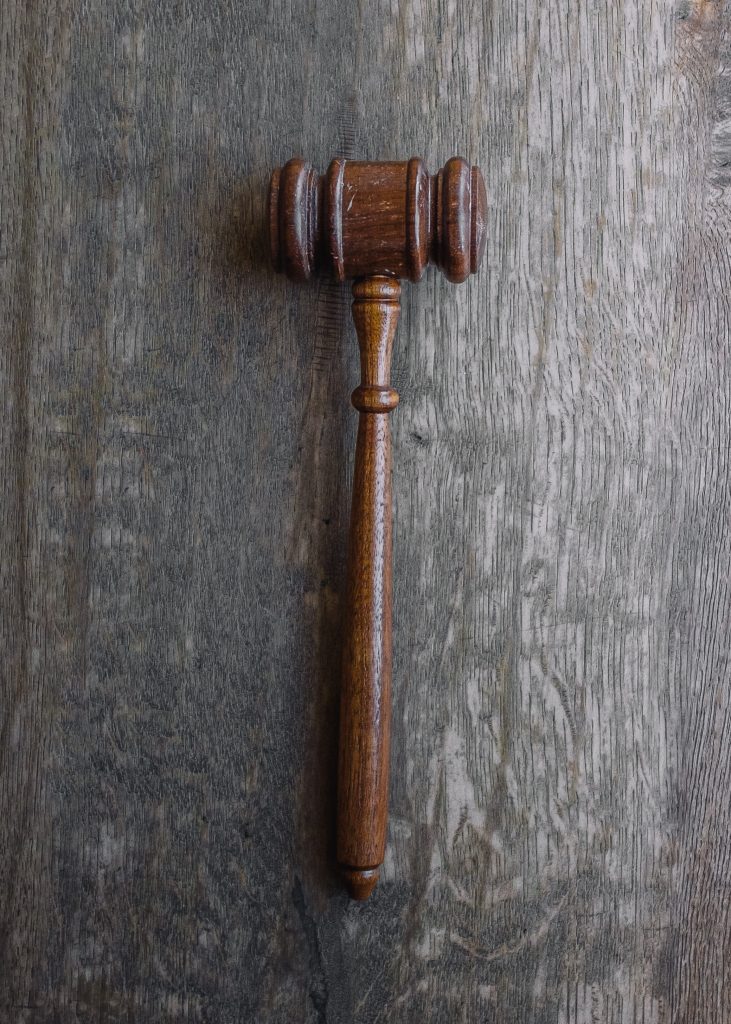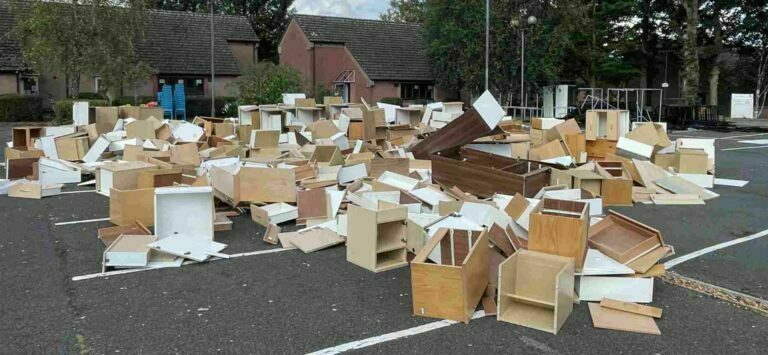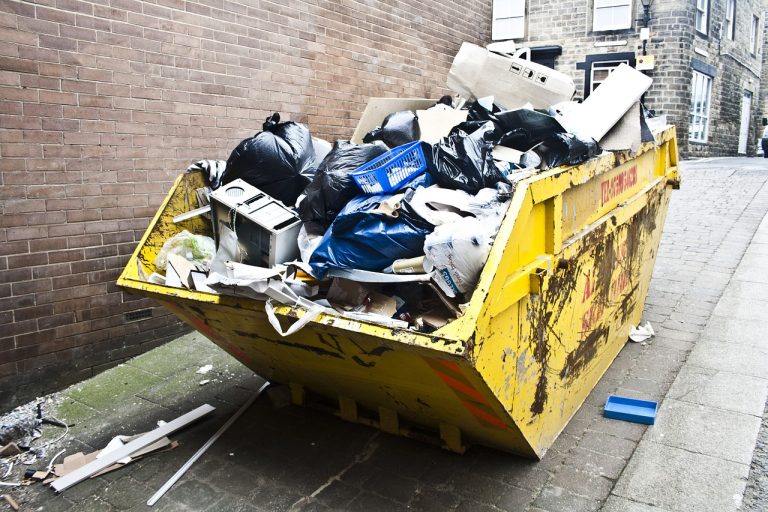How long do you have to clear a house after someone dies
When a loved one passes, it can be tough to know where to start with clearing their house. It may take different amounts of time, so it’s best to begin as soon as possible.
Firstly, you should inform relevant authorities and look into paperwork such as death certificates and contacting the solicitor or executor.
Next, sort through personal belongings. Decide what to keep, donate, sell, or throw away. Do it one step at a time.
Getting someone experienced in house clearances can help a lot. They can pack, organize auctions, and dispose of unwanted items.
Remember that sentimental value doesn’t always equal money. Cherish memories instead of objects to get comfort during this time.

Understanding the legal process after someone dies
Obtaining the death certificate is the first step. It is issued by the government. This document is needed for registering the death and starting any legal proceedings.
Then, it is crucial to notify banks, insurance companies, and utility providers about the person’s death.
Next, it is essential to account for and value the deceased’s assets, including property, belongings, savings, investments, and any debts they may have had.
After that, apply for a grant of probate or letters of administration. This depends on whether the deceased left a valid will.
If there is a valid will, an executor is responsible for administering the estate. But if there is no will or executor, an administrator will be appointed by the court to take care of tasks. The executor or administrator then has to collect documents, settle debts, and distribute assets to the beneficiaries.
The timeline for completing these procedures varies based on complexity and potential disputes. It is best to start the process soon after someone passes away to avoid delays.
Professional help from a solicitor who specializes in probate law can simplify and speed up this process. They can guide you and make sure all legal requirements are met, saving time and problems.
Steps to clear a house after someone dies
When someone passes away, the process of clearing their house can be overwhelming and emotional. Here is a step-by-step guide to help you navigate through the daunting task of clearing a house after someone dies:
- Assess the situation: Start by assessing the size of the task at hand. Determine whether you will need outside help or if you can handle it on your own. This will give you a better understanding of the time and effort required.
- Gather important documents: Before starting the clearing process, gather all the necessary documents such as the will, insurance policies, and any other legal paperwork that may be relevant. This will ensure that you have everything you need to proceed.
- Sort and organize: Begin sorting through the belongings in the house. Create different categories, such as keep, donate, sell, and discard. Take your time to carefully go through each item and make informed decisions.
- Seek professional assistance: If you find yourself overwhelmed or need assistance in clearing the house, consider hiring professionals who specialize in this type of work. They can help with organizing, packing, and even selling valuable items.
- Dispose of unwanted items: Once you have sorted everything, it’s time to dispose of the unwanted belongings. Donate items to charities or local organizations, sell valuable items, and responsibly dispose of anything that cannot be reused or repurposed.
- Clean and finalize: After the belongings have been sorted and the house is empty, it’s important to give it a thorough cleaning. This not only ensures a fresh start but also prepares the house for any potential future use or sale.
Remember, this process can take time depending on the size of the house and the number of belongings. It’s important to approach it with patience and understanding, as it can be emotionally challenging to go through someone’s personal belongings.
In addition, it’s worth mentioning that during this process, you may come across valuable items that hold sentimental or financial value. Seeking professional appraisals or expert opinions can be beneficial in determining the worth of such items.
A true fact: According to The Spruce, clearing a house after someone dies can take anywhere from a few weeks to several months, depending on various factors such as the size of the house, the number of belongings, and the availability of help.
Notify relevant authorities and agencies, because nothing says ‘I’m sorry for your loss’ like a knock on the door from the grim reaper of paperwork.
Notify relevant authorities and agencies
Dealing with the aftermath of a loved one’s passing necessitates notifying relevant authorities and agencies. Here are some steps to keep in mind:
- Contact the local police station. Let them know about the incident so they can document and assist.
- Inform the coroner’s office. They will investigate the cause of death and provide documentation.
- Notify healthcare professionals. Contact the deceased person’s doctor or medical team to update them.
- Reach out to social services. If the deceased had any ongoing support, inform them quickly.
- Contact government agencies. Notify departments such as pensions, tax offices, or benefits agencies.
These suggestions are vital for managing legal matters and providing support. By notifying them, you ensure transparency, record updates, and access to resources. Take proactive steps to make this process simpler.
Determine the ownership and beneficiaries of the property
Pinpointing who owns and who will get a property is key when clearing a house after someone dies. So, firstly, obtain any papers such as wills, titles, and trust agreements. After that, talk with legal experts or property agents to find out the legal condition of the property. Finally, contact persons like family or lawyers to confirm who will inherit the property.
It’s significant to be aware that this may be different depending on certain situations. For example, if there are multiple properties or complicated ownership structures.
A real life example is this: After an elderly couple passed away, their children had problems splitting their possessions due to uncertain ownership. Only after talking to legal advisors and researching did they determine the correct owners and settle it fairly.

Assess and categorize the belongings in the house
Assessing and categorizing the items in a house is an important part of the difficult task of clearing out a house after someone dies. This includes carefully evaluating and organizing what is left behind to make the transition easier.
Here is a 6-step guide to help:
- Start with one room at a time, beginning with the most important or most used rooms. This can help you work through the process systematically.
- Separate the items into categories such as personal belongings, furniture, electronics, and sentimental items. This can help you decide what to keep, donate, sell, or throw away.
- Evaluate the condition and value of each item. Think about age, usability, sentimental value, and market worth. Professional appraisers or estate sale experts can help with valuable or antique pieces.
- Create separate piles for items with emotional value, even if they are not practical. It’s important to respect the attachment while also decluttering.
- Talk to family members or close friends who may have requests for certain items or heirlooms. Knowing their wishes can make decisions easier.
- Make an inventory list as you go to stay organized and document all the items.
Remember, each situation is different. Professional help or legal advice might be useful for complex estates.
Also, consider donating usable items to charities or organizations that the deceased supported – it can be comforting knowing their possessions are going to a good cause.
Fun fact: The Guardian newspaper reports that sorting through belongings after someone passes away can take from weeks to months, depending on factors like the size of the property and number of things involved.
Decide what to keep, sell, donate, or dispose of
When clearing a house after someone passes away, deciding what to keep, sell, donate or dispose of is essential. Respectful & responsible handling of the deceased’s belongings is key.
- Keep items with special memories.
- Sell valuables to generate funds or inheritance.
- Donate furniture, clothing, or appliances to charities.
- Dispose of non-functional items as per local guidelines.
- Consult family members to prevent conflicts.
- Seek professional help for valuable assets or large estates.
Also, organize legal documents such as wills, deeds, & financial records separately. Keep them safe & accessible. Be patient & understanding as this process may take time. Following these steps helps manage the belongings in a meaningful way.
Fun fact: Donating possessions can bring joy & positivity during a grieving period. (Source: The Spruce website).
Hire professionals if necessary
When a loved one passes away, hiring professionals to clear the house can be a game-changer. People may lack time, strength, or emotional ability. Professionals have the knowledge and experience to treat sensitive situations with care.
Professionals offer many benefits when dealing with an estate. They know the legal rules so everything is done correctly. Also, they are fast and efficient, so you can focus on other things.
Moreover, when family and friends are involved, objectivity can be hard to maintain. Professionals can make tough decisions objectively. They also know the true value of possessions.
If you are feeling overwhelmed, seek professional help. Don’t miss out on any opportunities to properly address your loved one’s belongings.
Every detail counts when settling an estate. Hiring experts can provide peace of mind that things will be taken care of in a respectful way. So don’t be afraid to ask for help.
Clean and organize the house
After somebody passes away, cleaning and organizing their house is a vital task. It needs detail and sensitivity. Handle possessions with care and respect, and make sure the space is tidy for later use. Here’s a 3-step guide to help:
- Sort and categorize: Go through each room and sort items into categories, like keep, donate, sell, or discard. Think about sentimental value too.
- Declutter and clean: Remove any unneeded things or furniture blocking the room or gathering dust. Deep clean, paying attention to details.
- Organize and arrange: After cleaning, organize the rest neatly. Use storage solutions – boxes, bins, shelves – to make spaces for different items. Label them for easy access.
Also, don’t overlook unique items that may need special handling or appraisal before deciding what to do with them.
My friend Sarah experienced this after her grandmother passed away. Clearing the house was a journey of memories and treasured possessions. Sarah did it carefully, allowing herself time for reflection. She found old photos of family events, which was bittersweet. In the end, the task brought closure.
Cleaning and organizing a house after somebody dies is difficult, but it can be meaningful if done with care and reflection.
Dealing with sentimental items
Dealing with sentimental items can be a delicate and emotional task when clearing a house after someone passes away. It requires sensitivity and careful consideration to ensure that cherished possessions are properly handled and preserved.
- 1. Sort through personal belongings with empathy and respect. Take the time to go through each item, understanding its sentimental value and significance to the deceased and their loved ones.
- 2. Involve family and friends in the process. Seek their input and guidance to make decisions together, ensuring everyone feels heard and included in the sentimental item selection.
- 3. Consider creating a memory box. This can be a special place to keep meaningful items that hold sentimental value, allowing you and your loved ones to revisit memories whenever needed.
- 4. Explore options for conservation. If sentimental items are delicate or valuable, you may want to consider professional restoration or preservation to ensure their longevity.
- 5. Address conflicts and disagreements. In the event that family members have conflicting opinions on the distribution of sentimental items, open communication and mediation can help find mutually agreeable solutions.
- 6. Donate or pass on sentimental items. If you come across items that hold deep sentimental value but do not personally resonate with you or your family, consider donating them to a charity or passing them on to someone who will appreciate them.
To navigate this process, it is essential to be understanding of the emotional weight behind each item. By approaching the handling of sentimental items with sensitivity and openness, you can ensure that the legacy of your loved one is honored and that the items evoke cherished memories for years to come.
Remember, the sentimental value of an item often far outweighs its material worth. Keep this in mind as you make decisions about how to handle and preserve these precious possessions.
Don’t fight over the inheritance, unless you want the ghosts to fight over you.
Communicate with family members and heirs
Communication is essential when it comes to handling sentimental items. These have emotional value and must be discussed with relatives and heirs. Here’s how:
- Start the conversation: Gather everyone involved and find a relaxed place to talk about the sentimental items.
- Listen carefully: Let everyone express their views and feelings about the items. Be open-minded and understanding all the way through the discussion.
- Respect opinions: Each family member may have different connections to certain items. Create an atmosphere where all opinions are listened to and respected.
- Reach an agreement: Group up and find solutions that satisfy everyone’s wishes. Compromise may be required, but make sure everyone feels appreciated in the decision-making process.
- Set clear guidelines: After decisions are made, make rules for how the sentimental items will be shared or given to family members. This will help avoid any miscommunications or disagreements in the future.
It’s important not to let sentimental items become sources of tension or sorrow among your family. Don’t delay in beginning these conversations before it’s too late. Take action now and make sure everyone’s voice is heard and taken into account when deciding on these precious belongings.
Create a system for distributing sentimental items
Forming an efficient system to share sentimental items can be difficult. But with careful planning and organization, it’s possible to guarantee these precious possessions go to the right people. Follow these 6 steps to help form such a system:
- Take stock of the sentimental value: Begin by judging the emotional worth of every item. Decide if it holds a strong connection or if its importance is mainly monetary.
- Pick out potential recipients: Think about who would appreciate and treasure the sentimental items. This could be family, close friends, or people who shared particular memories with the items.
- Speak out your intentions: Clearly express your plans for distributing these items to your loved ones. Make sure they know you want to make sure each item finds the right home and explain how you’ve carefully thought about their personal preferences.
- Ask for input from others: Take those close to you into the decision-making process. Have open conversations about who should get each item, considering their emotional ties and what value they place on it.
- Make a fair and transparent process: Set out clear rules for distributing sentimental items, bearing in mind fairness, equal representation amongst family, and respect for individual wishes.
- Write down your decisions: Keep a record of your decisions and explain them to the people involved to prevent any confusion or disagreements.
Although creating a system for distributing sentimental items might seem intimidating, it’s essential to make sure these treasured possessions find the right homes where they will be appreciated and valued through the generations.
Apart from these steps, remember sentimentality can sometimes cloud our judgment when choosing who gets an item. It’s important to think objectively while still honoring the emotions linked with each object.
The National Association of Senior Move Managers (NASMM) says forming a system for distributing sentimental items stops family members from getting tense during the transition process.

Addressing legal and financial matters
When it comes to addressing legal and financial matters after someone dies, there are important steps that need to be taken. These steps include dealing with the deceased person’s assets, debts, and any legal documents they may have had in place.
To provide a clear understanding of these matters, let’s take a look at the following table:
| Step | Description |
| 1 | Obtain the Death Certificate |
| 2 | Notify Relevant Parties |
| 3 | Secure the Deceased Person’s Property |
| 4 | Identify and Notify Heirs and Beneficiaries |
| 5 | Settle Debts and Expenses |
| 6 | Distribute the Remaining Estate |
| 7 | Finalize Legal and Financial Matters |
It’s important to note that each step may require varying amounts of time to complete, depending on the complexity of the estate and the presence of a will. Therefore, it is advisable to seek legal assistance to navigate the process smoothly.
In addition to these general steps, there may be unique details that need to be addressed based on the individual’s circumstances. These could include specific legal requirements or considerations related to the deceased person’s profession, assets, or debts.
To illustrate the importance of addressing legal and financial matters properly, consider a true history where a family faced significant difficulties after neglecting to handle these matters promptly. Their failure to address outstanding debts and distribute the estate led to complicated legal proceedings and strained relationships among family members.
Talk to a lawyer and get your legal ducks in a row, because navigating the maze of a deceased person’s house can be scarier than the haunted mansion at the local theme park.
Consult with an attorney or estate planner
Connecting with a lawyer or estate planner is major for dealing with legal and money matters. They have the know-how to guide you through tricky legal procedures. This makes sure your plans are done smoothly and follow the relevant laws and rules. These specialists can help you create wills, trusts, and other necessary legal forms to keep your assets safe and protect your loved ones.
By seeing them, you get access to info on tax planning, sharing assets, and any issues that might come up during the probate process. Lawyers that specialize in estate planning can give customized solutions that fit your life, helping you make wise decisions and reach your goals.
Plus, estate planners can give you advice on financial moves like investments, retirement planning, and wealth protection. They work with financial experts to make plans that match your long-term plans.
Pro Tip: When talking to a lawyer or estate planner, have all the documents and info about your assets and debts ready. That way, they can give you accurate info on your situation and have a more successful discussion.
Settle outstanding debts and bills
Stressed about unpaid debts and overdue bills? Don’t let it take over! Take control by following these 3 steps:
- List ’em up: Gather all your bills, loan statements and credit card invoices. Make a list of the amounts owed and their due dates.
- Plan it out: Prioritize debts based on urgency and interest rates. Pay high-interest loans first to stop accruing more debt. Negotiate with creditors if needed.
- Stay focused: Set a budget, cut back on unnecessary expenses and allocate funds towards debt payments every month. Automate payments if possible.
Every little bit helps when it comes to debt settlements. Focus on your goal and take charge of your finances. Don’t delay – you could end up with interest charges, penalties or legal consequences. Take action now to become debt-free and your future self will thank you!
Transfer or sell property ownership
To transfer or sell property ownership, some important steps must be taken. First, ensure all legal documents are in order, including deeds and contracts. Get assistance from a solicitor or conveyancer who is experienced in property transfers.
Then, survey the property. Check if there are any issues that could affect the value. This includes structural integrity, utilities and building regulations.
To increase the property’s value, make repairs and improvements. A well-maintained property will attract more buyers and raise the selling price.
Photographs and descriptions are essential for marketing the property. Use online platforms and traditional advertising.
During negotiations with buyers, communicate with your solicitor or conveyancer. They can help with contract negotiations and money transfers.
By following these tips, you can streamline the process of transferring or selling property ownership. Seek professional advice for peace of mind and optimal results.
Conclusion
Clearing a house after someone passes away has many factors, such as legal stuff and the size of the estate. It’s essential to get advice from experts for it to go smoothly. Executors should focus on sharing assets, paying off debts, and managing any legal affairs before they clean out the house. Lawyers or estate agents can be great help during this emotional and difficult experience. It’s critical to set aside time to respect the dead person’s wishes, and meet legal requirements for a successful transition.
Pro Tip: Make a list of possessions, list the tasks in order, and ask friends and family for help during this overwhelming time.
Frequently Asked Questions
Q: How long do you typically have to clear a house after someone dies?
A: The time frame to clear a house after a person’s death can vary. It is dependent on various factors such as legal procedures, family arrangements, and personal circumstances. Generally, it can take several weeks to several months.
Q: What legal procedures are involved in clearing a house after someone dies?
A: Legal procedures involved in clearing a house after someone dies may include obtaining a probate or grant of representation, notifying relevant authorities and institutions, reviewing the deceased’s will (if applicable), and settling any outstanding debts or taxes. It is advisable to consult with a legal professional for guidance.
Q: Can the clearance of a house be delayed or extended?
A: Yes, the clearance of a house can be delayed or extended due to various reasons. Delays may occur if there are complex legal matters, disputes among beneficiaries, or issues related to the estate’s assets and distribution. It is essential to anticipate potential delays and seek professional advice to navigate such situations.
Q: Who is responsible for clearing a house after someone dies?
A: The responsibility of clearing a house generally falls on the deceased person’s family or the designated executor of their estate. However, it is important to understand legal obligations and consider enlisting professional services like estate clearance specialists, removal companies, or solicitors to ensure a smooth process.
Q: What should I do with the belongings and valuables found in the house?
A: When clearing a house after someone dies, belongings and valuables should be handled with care. Depending on their sentimental or financial value, they can be distributed among family members, sold, donated to charity, or safely stored. It is recommended to consult with family members and professionals to determine the best course of action.
Q: Are there any items that should not be removed from the house?
A: Certain items should not be removed from the house until relevant legal procedures are completed. These may include items specified in the deceased person’s will, potential evidence for legal matters, or items subject to disputes among beneficiaries. It is advisable to consult with a legal professional to ensure compliance with legal requirements.







